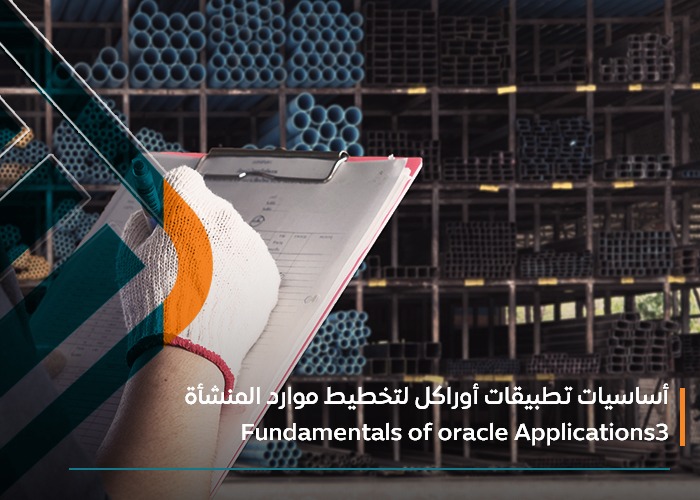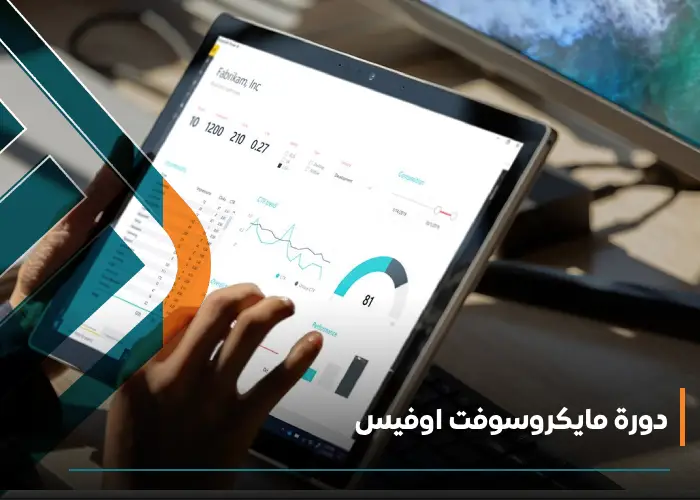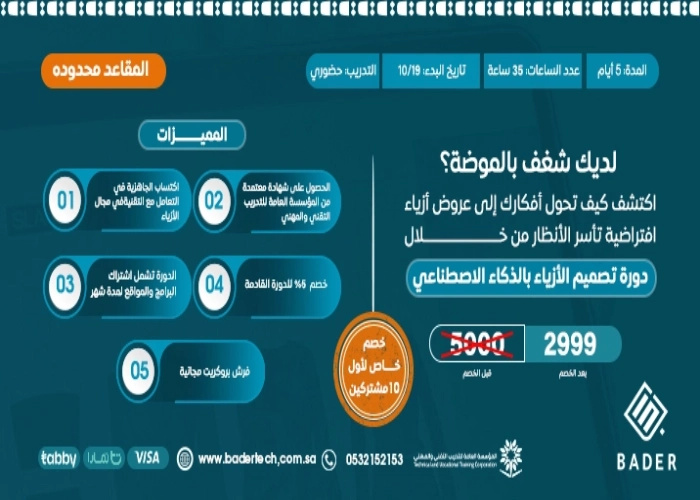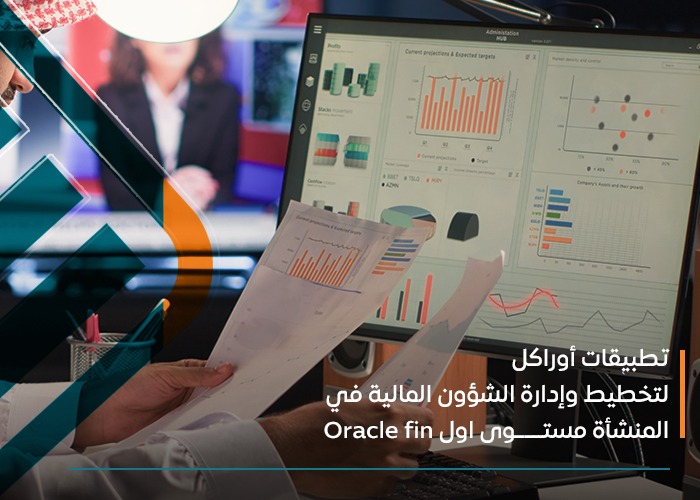
Overview:
The Oracle ERP Applications Fundamentals course is one of the most important training programs in the field of Enterprise Resource Planning (ERP). It provides participants with the knowledge and skills needed to understand how the Oracle ERP system works and how to use its core applications to manage different business processes.
The course focuses on explaining the main modules of Oracle, such as Financial Management, Human Resource Management, Supply Chain Management, and Procurement, in addition to showcasing how these modules integrate to achieve greater efficiency and better organizational performance.
Through this course, participants will gain the ability to work effectively with Oracle systems, helping them enhance institutional performance and support decision-making in today’s competitive business environment.
Objectives:
-
Understand the concept of Enterprise Resource Planning (ERP) and its importance in modern business environments.
-
Learn the main components of Oracle ERP Applications.
-
Become familiar with the core modules such as Financials, HRMS, and SCM.
-
Learn how to integrate data across different departments using Oracle.
-
Gain knowledge of basic system setup and customization to meet business needs.
-
Apply best practices in using Oracle ERP systems to improve productivity and reduce costs.
Learning Outcomes:
By the end of this course, participants will be able to:
-
Understand and apply the practical fundamentals of Oracle ERP systems in the workplace.
-
Work with the main modules of the system, including accounting, human resources, and supply chain management.
-
Use Oracle applications to analyze data and prepare reports that support managerial decisions.
-
Integrate financial, administrative, and logistical processes to achieve organizational efficiency.
-
Build a strong knowledge foundation that qualifies them for advanced courses such as Oracle Financials or Oracle SCM.
-
Course title
Basics of Oracle Applications for Enterprise Resource Planning -
Overall time
30 Hour -
Overall days
5 Day -
Course type
- Offline
About course
What is the Oracle ERP Fundamentals Course?
The Oracle ERP Fundamentals Course is one of the most important training programs sought after by accountants, business analysts, and company managers who want to develop their skills in using Oracle systems to manage enterprise operations.
This course focuses on introducing trainees to the concept of ERP – Enterprise Resource Planning and how to apply it using Oracle ERP systems, which are among the strongest and most widely used software solutions worldwide for managing financial resources, supply chains, procurement, and reporting.
By studying the fundamentals of Oracle ERP applications, trainees will learn:
-
How the core financial modules work, such as General Ledger (GL), Accounts Payable (AP), and Accounts Receivable (AR).
-
The role of Oracle in managing procurement and supply chain operations and linking them with financial processes.
-
How to prepare financial reports and analytics to support strategic decision-making.
-
The basics of system setup and integration with other enterprise systems.
This course goes beyond theory by emphasizing practical, hands-on applications with Oracle ERP, making it one of the strongest programs that prepare you to work in modern business environments.
What are the Core Components of Oracle ERP?
The Oracle ERP Fundamentals course serves as the main entry point to understanding how Oracle systems operate within organizations. Oracle ERP relies on a set of integrated modules covering financial, administrative, and operational functions, making it one of the most powerful global solutions for enterprise resource management.
Key Oracle ERP components include:
-
Financial Modules
-
General Ledger (GL): Managing financial accounts.
-
Accounts Payable (AP): Managing payments and suppliers.
-
Accounts Receivable (AR): Tracking receivables and customers.
-
Cash Management: Handling cash flow and bank reconciliations.
-
-
Supply Chain & Procurement Management
-
Managing procurement processes, inventory, and suppliers.
-
Linking supply chain operations with financial activities to ensure transparency and accuracy.
-
-
Fixed Assets Management
-
Tracking fixed assets such as equipment and buildings.
-
Calculating depreciation and generating accurate asset value reports.
-
-
Financial Reporting & Analytics
-
Generating accurate financial reports.
-
Using Business Intelligence (BI) tools and data analysis to support strategic decisions.
-
In short, Oracle ERP modules are designed to work together seamlessly, covering the full cycle of financial and administrative processes. Learning them through the Oracle ERP Fundamentals course is a crucial step for anyone aiming to stand out in the job market.
The Importance of Learning Oracle ERP in the Job Market
With the rapid development of the business world and the increasing reliance on digital systems, mastering Oracle ERP has become one of the most in-demand skills in the labor market. Oracle ERP is considered one of the most powerful global systems used by large enterprises to efficiently manage financial, human, and operational resources.
Why is Oracle ERP important in today’s job market?
-
Widespread Adoption: Thousands of organizations worldwide use Oracle ERP to manage accounts, procurement, inventory, and human resources—greatly increasing demand for specialists.
-
High Job Demand: Oracle ERP-certified professionals are highly sought after in banking, telecommunications, oil and gas, government institutions, and global consulting firms.
-
Career Advancement: Learning Oracle ERP fundamentals qualifies trainees for senior roles such as ERP Systems Analyst, Oracle Financial Consultant, or Finance Manager with Oracle expertise.
-
Competitive Edge: Having Oracle ERP skills sets job candidates apart and provides a strong advantage with employers who value both financial and technical expertise.
Thus, the importance of learning Oracle ERP extends beyond improving employability; it also builds a strong career path aligned with global business needs in enterprise resource management.
Career Opportunities After Oracle ERP Fundamentals
Enrolling in the Oracle ERP Fundamentals Course is a key step in unlocking broad career opportunities. With the growing reliance of global and regional organizations on Oracle ERP for managing financial and administrative operations, the demand for professionals in this field is continuously rising.
Top job opportunities after Oracle ERP training include:
-
Oracle ERP Consultant – Specializing in implementing and managing Oracle ERP systems, configuring financial and administrative modules to meet business needs.
-
ERP Systems Analyst – Analyzing system data, preparing reports, and supporting management in data-driven decision-making.
-
Oracle Financial Accountant – Managing General Ledger, Accounts Payable, Accounts Receivable, and financial reporting.
-
Oracle Procurement & Supply Chain Specialist – Managing suppliers, inventory, and supply chains through Oracle applications.
-
Finance/ERP Manager – Senior-level roles combining financial expertise with Oracle ERP system management.
Why are career opportunities after Oracle ERP so attractive?
-
Heavy reliance on Oracle ERP in banks and large corporations.
-
High demand across sectors such as energy, telecommunications, investment, and government.
-
Competitive salaries due to the shortage of skilled Oracle ERP professionals.
In summary, obtaining an Oracle ERP Fundamentals certification gives you a strong edge in the job market and qualifies you to enter one of the fastest-growing and most in-demand professions both locally and globally.

































